More than just a pet – Interview with Give a Dog a Bone Founder Louise Russell
Tags
Interviews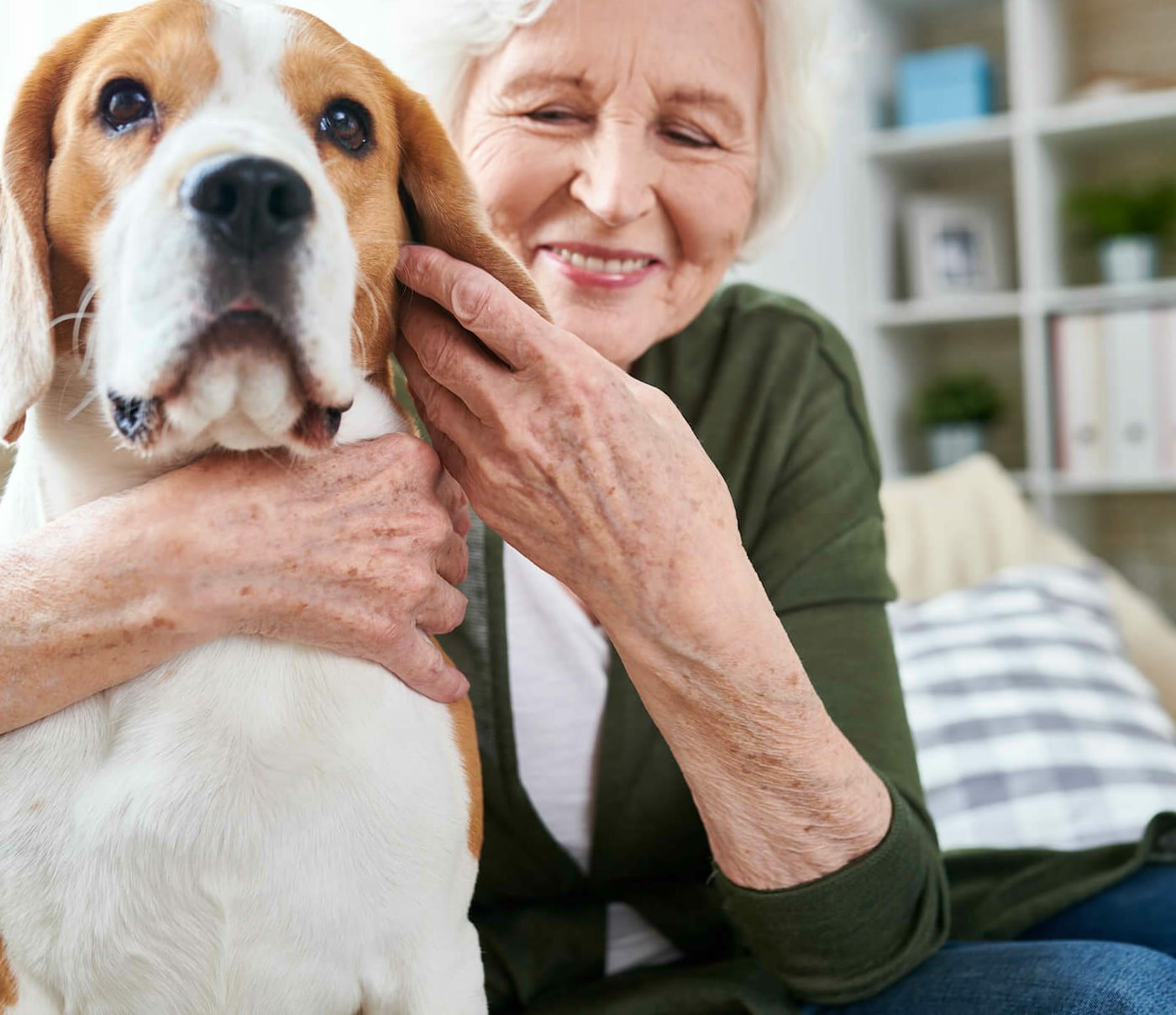
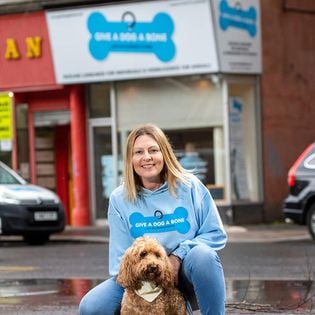
There are over 1 million lonely older people living in the UK.And, each year around 250,000 animals enter rescue centres. Give a Dog a Bone…and an Animal a Home is a charity tackling both of these growing issues.
Through financial support and community projects, they’ve brought animals and the over 60s together for almost a decade.
Last year, Founder and Chief Executive Louise Russell was awarded the Pride of Scotland’s Community Hero award, for her continued commitment to combating later life loneliness and animal homelessness. We spoke to Louise to find out more about Give a Dog a Bone, and why the connections between older people and pets are so precious and must be protected.
A crucial source of companionship
It’s no secret that we’re a nation of pet lovers – last year the share of UK households with a pet hit an all-time high of 62%.
Speak to any pet owner and they’ll no doubt tell you their pet improves their life. Plenty of research backs this up too. Spending time with animals has been linked to lower blood pressure, improved empathy, and sharper memory.
However, for older people, the impact of owning a pet can often go a step further. It can become a key driver to staying active and connected to the world around them.
“The reality is, as we get older, opportunities for companionship decline. Obviously, in a lot of scenarios people no longer work, their family may have grown and flown the nest, or they may not have a family. So, a lot of the social circles they would have moved in previously would have dwindled to various extents” explains Louise. “Having an animal in your environment can be a constant source of companionship. it’s nice to come home and there’s somebody waiting for you. That animal is always pleased to see you. They don’t judge you.”
Maintaining purpose in our later years can also become more difficult. Without a job to go to or children to pack off to school, older people may find themselves with fewer reasons to leave the house or stick to a healthy routine. This is also something Louise believes pets help with considerably.
“If you’ve got a dog, you have to walk that dog. And when you walk the dog, more often than not, people give you a smile or give you a kind word or stop and talk. It’s not only good for your physical well being, it’s good for your mental well being as well. Even having a cat in your environment still gives you a motivator. It’s still a reason to get up in the morning. My cats certainly like to jump on my head in the morning and tell me it’s feeding time! An animal gives you a sense of purpose. You’ve got to feed it, you’ve got to take care of it, and you’ve got to make sure it’s healthy.”
It's companionship, it's a sense of purpose. It's also a real motivator for people.
Louise Russell
Enabling pet ownership in later life
While the benefits can’t be contested, unfortunately owning an animal can feel out of reach for many older people.
Financially speaking, the cost of keeping a pet happy and healthy is a huge long-term commitment. According to Battersea Dogs Home the average dog owner can expect to part with £2000 a year.
Louise and Give a Dog a Bone are working to break down these financial barriers, while also reducing the number of animals stuck in rescue centres. The charity covers rehoming fees for new pet owners, and helps existing owners with recurring costs such as insurance fees.
“We recognise that if you’re already worried about money, taking on an animal can mean you’re one fall away from a very expensive vet bill. So we like to encourage people to access our support to help them ensure their pets are, and can stay well.”
The charity has also established pet food banks at their three community spaces, which have become an essential resource throughout the current cost of living crisis.
“We’ve certainly seen a lot more people accessing our pet food banks. I’m working, but my dog’s a big dog and the cost of his food has risen by 50% – that’s just the reality of the situation, everything’s getting more expensive. We’ve all heard the stories of people feeding their animals before they feed themselves, so we’re proud to offer pet food banks which are available to anybody of any age, not just older adults.”
It’s not only owners that need support
Louise and her team know that supporting older adults who love animals but don’t own one is just as important.
After all, the desire to spend time with animals doesn’t diminish with age, nor does the plethora of health and wellbeing benefits that come with it. However, as Louise explains, people can miss out on these connections for lots of different reasons.
“Mobility can play a part. And, not all sheltered accommodation allows you to have pets. And then a lot of people say, I don’t want an animal to outlive me – we hear that more often than we’d like. They’re worried if something happens to them they’ll leave the animal behind. But then on the other side of it we also have older adults who say I can’t go through the heartbreak of losing another animal. So it’s just something that we all recognize. I’ve got several animals and they are a bind and as you get older, you go through life and it’s an added responsibility and sometimes maybe they just think I need just to be free of that responsibility now.”
Give a Dog a Bone is helping to address these needs through their community spaces in Glasgow, Troon and Alloa. Older people can pop in, enjoy a hot drink and a chat, and spend quality time with companionship dogs. The charity also run group dog walks and activities like chair yoga.
“It’s what makes our community spaces so special. People can come to us and spend time with animals without the added responsibilities of taking an animal home. I like to say they can come and scratch their ‘doggy itch’. It’s that old adage, it’s nice to babysit, but it’s also nice to give the baby back at the end of it. It’s kind of like that with dogs as well.”
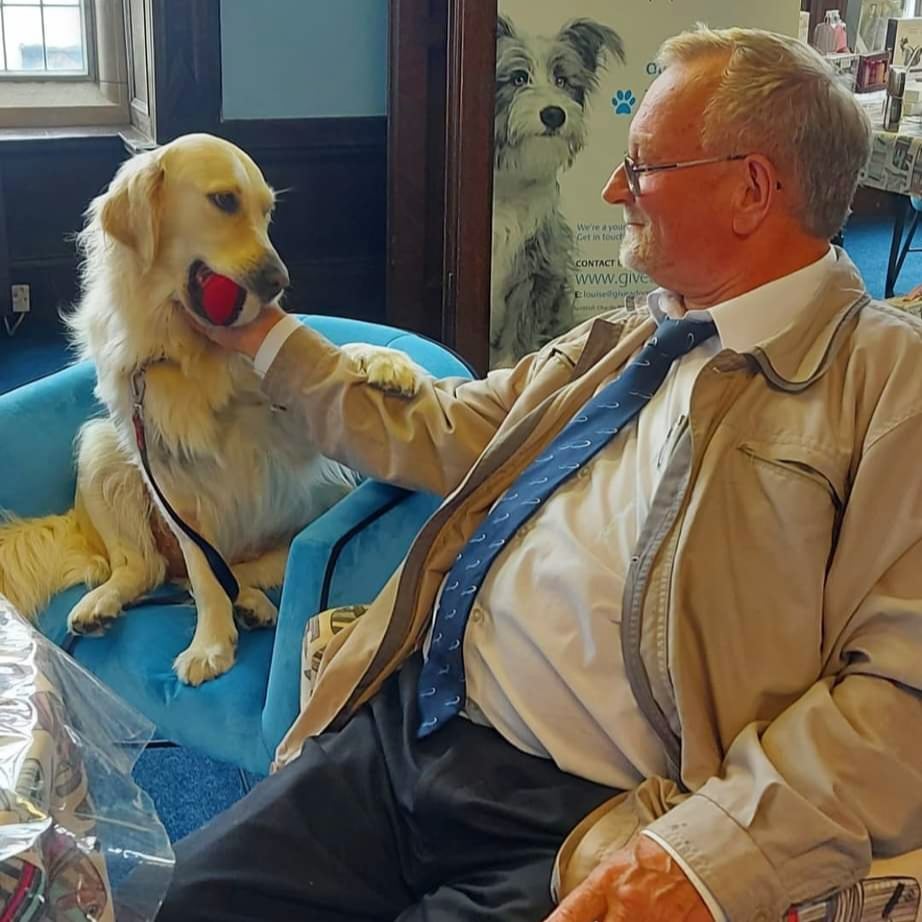
Improving understanding within communities
Animal lovers understand how strong the bond with an animal can be, and the emotional rollercoaster people can find themselves on when animals are no longer part of their daily lives.
However, in later life, especially when care comes into play, the need for animal companionship isn’t always as easy to spot or fully understood.
“I think it’s about recognizing people as individuals and recognizing that for some people in their care, animal contact is hugely important. There’s definitely a wider piece to be done. For example, at an open day a couple of weeks ago there was an older lady who was nonverbal, so it took some years to realise she was mad about animals. Me going in with the dogs was just a huge lift for her. There’s definitely people slipping through the net that are not getting the exposure to animals that they would truly love.”
Making miracles happen every day
So, for Louise and the Give a Dog a Bone team, what are the realities of tackling two significant social issues at once?
“I always say I’m really lucky that my passion has transpired to be something that I get to do every day. There’s wee moments of miracles that we’re delivering all the time. And I think the real trick is to make sure it doesn’t become something that you take for granted and that you actually take a step back. It’s challenging, but there’s something that happens every week that you’re like, oh, that’s why we do this here. That’s why we’re doing this. This is the difference we’re making to folk. We’re a really small team delivering a really big service.”
Barbara’s story
Barbara is 78 years old, and a regular visitor to Give a Dog a Bone’s Shawlands Community Space
“I’ve had dogs around me since I was a baby. Mum and Dad were big animal lovers and we had every size and breed when I was wee – german shepherds, collies, labradors – you name it!
I was always involved with dogs – I used to volunteer dog walk for a local pound and would sometimes walk 4 at a time. My last dog was named Tilly, a rescue from Dogs Trust. Tilly died 6 years ago. I had just lost Tilly and was trying to fill my time, and spend time with dogs, and I would visit local parks – that’s where a lady sat next to me on a bench and told me about Give a Dog a Bone in Shawlands. I made a point of trying to find it and have been coming ever since.
My favourite part of coming to Give a Dog a Bone (GADAB) is the dogs. I love the human company and making new friends but I absolutely love the dogs, especially the dog walk – even if it’s pouring with rain, I won’t miss it.
I’ve made some nice friends here at GADAB and I often help and advise the other GADAB visitors with their dogs, as I have a lot of experience. They trust me and I like to help. I would miss GADAB dreadfully if it wasn’t here – it’s the one place I know I will get both human and dog company. I would be limited to talking to strangers in the street and asking them if I can pat their dogs, if GADAB didn’t exist.
I really look forward to coming here – it stops me from staying home alone, it gives me a reason to get out and talk to people. Coming to GADAB lightens my mood and makes me feel better.
I would say it’s my favourite place to come but, actually, it’s my only place to come.
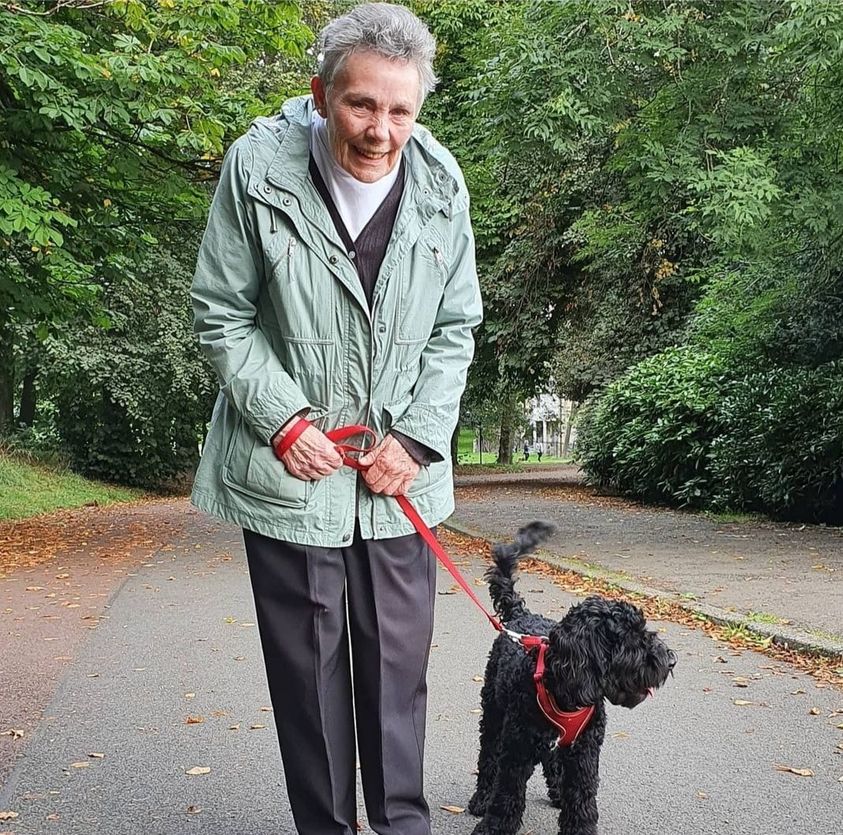
If you think you or a loved one would benefit from the great work of Give a Dog a Bone, you can find out more about their services here.
As a registered charity, Give a Dog a Bone is empowered to do what they do by the generosity and support of the public. If you’d like to help Louise and the team there are many ways you can get involved and spread the word – from keeping them in mind for your next fundraising event, to voting for them in annual awards. You can find out more here
Related reading
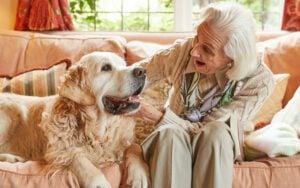
Live-in care – can it help the elderly look after their pets?
What support is available for the Elderly with pets? Most of us will acknowledge what a great addition a much-loved pet is to our household
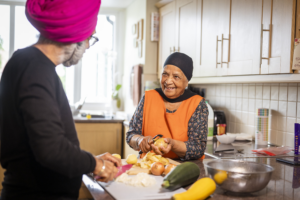
What domestic tasks will a home carer look after?
What domestic tasks will a home carer look after? Live-in carers are at the heart of our comprehensive approach to round-the-clock home care. Care isn’t
Read our latest interviews
Browse our latest interviews, and research on elderly living, from leading national experts.